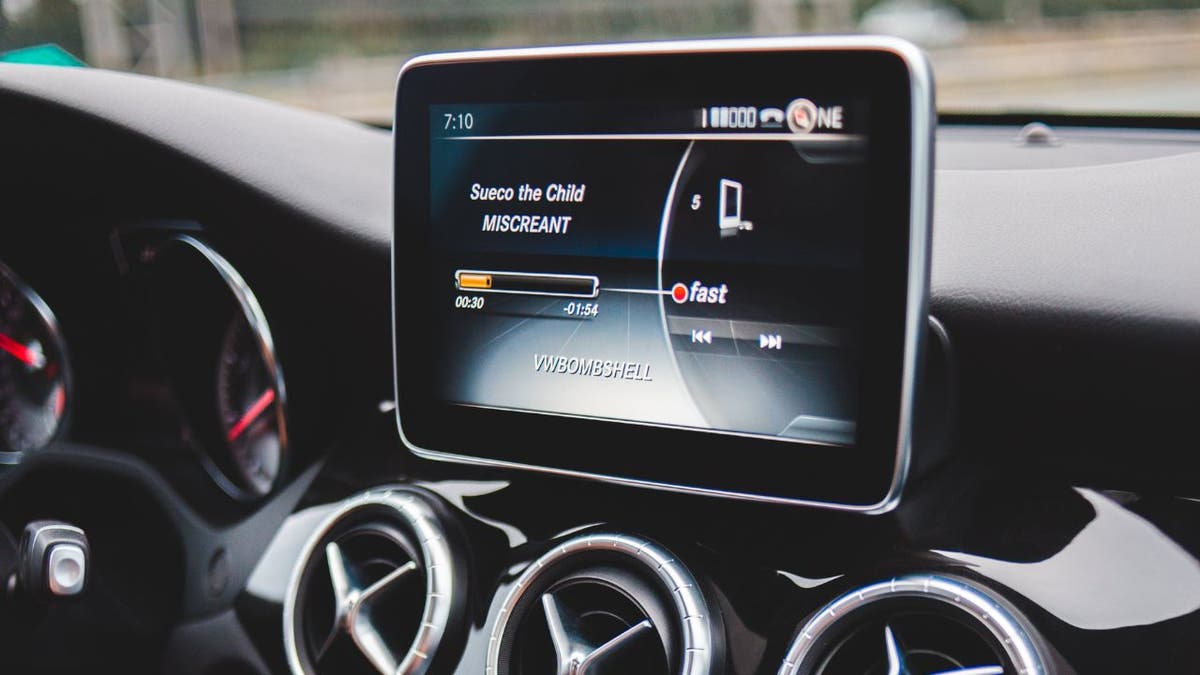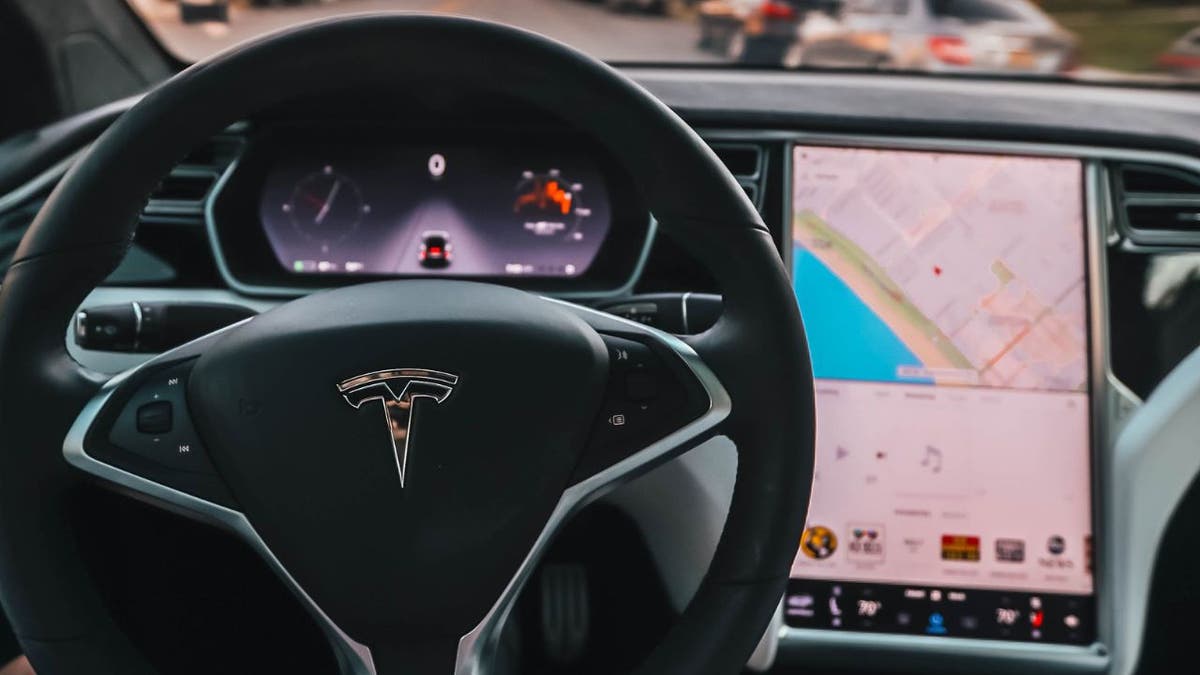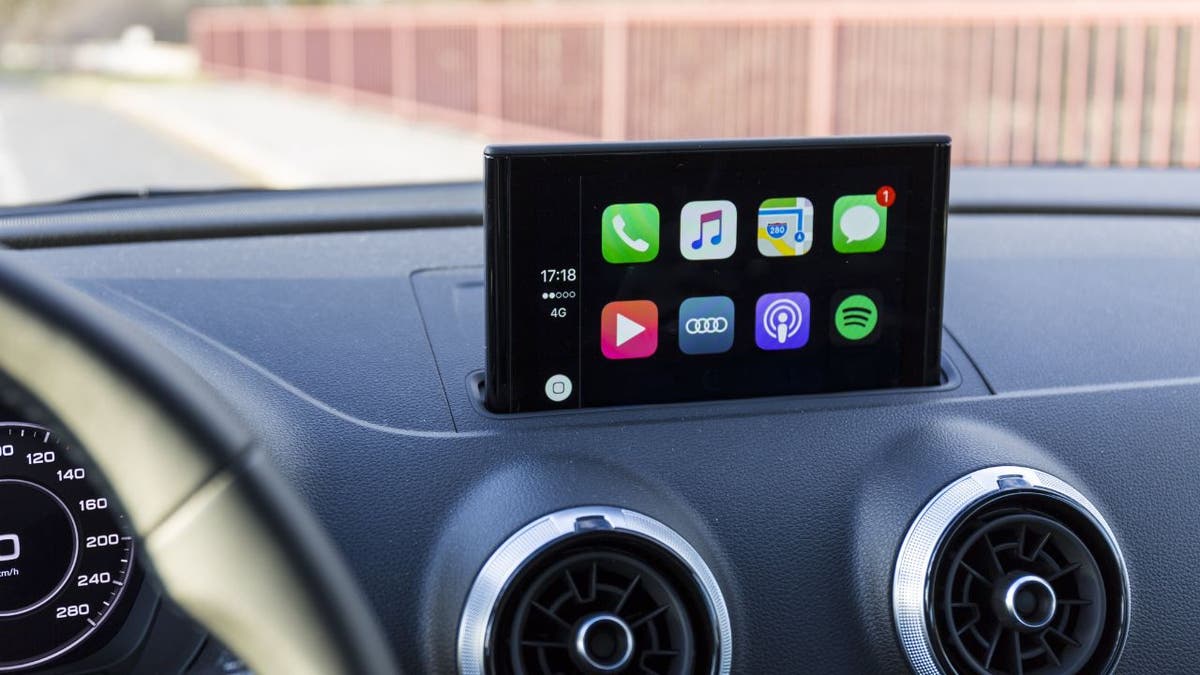[ad_1]
You probably know that your smartphone and laptop store a lot of your personal data, such as your photos, messages, passwords, and browsing history. But did you know that your car does the same thing?
Your car can collect and share a lot of information about you, such as where you are going, what you say, and how you feel. According Mozilla researchMost cars sold in the US today are “privacy nightmares on wheels” that collect enormous amounts of personal information.
This data is collected by Sensors, microphones, cameras and phones. and devices you connect to your car, as well as through car apps, company websites, dealerships, and vehicle telematics systems. And if you don’t erase your car’s data before selling or trading it in, you could be putting your privacy and security at risk.

Your vehicle collects and shares a lot of information about you. (Kurt “CyberGuy” Knutsson)
MORE: HOW TO HELP PREVENT YOUR CAR FROM BEING STOLEN
What type of data does your car collect?
The amount and type of data your car collects depends on the make, model, and features of your vehicle. Some of the common data points include:
- Vehicle Identification Number (VIN)
- Mileage, speed, fuel level and oil life.
- Tire pressure, engine temperature and battery status.
- Brake, steering and acceleration patterns.
- GPS location, destination and route.
- Voice commands, phone calls and text messages.
- Media preferences, playlists and contacts
- Biometric data, such as heart rate, blood pressure, and stress level.
Some of this data is essential for the proper functioning of your car; some are useful to improve your driving experience; and some are sensitive and personal, such as biometric data, phone calls and text messages.

The amount of data your vehicle collects depends on the make and model. (Kurt “CyberGuy” Knutsson)
MORE: 5 BEST RADAR DETECTORS AND APPS
How does your car share your data?
Your car can share your data in different ways, depending on the technology and the agreement you have with the manufacturer or service provider. Some of the common methods are:
Cell phone: Your car can send data over a cellular network, either using its own SIM card or your smartphone connection. This is how some cars offer features such as remote start, emergency assistance or navigation services. However, this also means that your car may send data to the manufacturer or other parties without your knowledge or control.
Wifi: Your car can connect to a Wi-Fi network, whether at your home, workplace, or in a public access point. This may allow you to download software updates, access online services, or stream media. However, this also means that your car can upload data to the cloud or other servers without your consent or knowledge.
Bluetooth: Your car can be paired with your smartphone or other devices via Bluetooth. This can allow you to make hands-free calls, play music, or use apps. However, this also means that your car can access data from your devices, such as your contacts, messages or photos, and potentially share it with others.
THE MOST MADE CARS IN THE UNITED STATES AND MORE CAR STORIES
USB: Your vehicle can read data from a USB drive or a device that you connect to it. This may allow you to play media, update software, or transfer files. However, this also means that your car can copy data from your drive or USB device and possibly share it with other people.

Vehicles can read data from a USB drive or a device you connect to them. (Kurt “CyberGuy” Knutsson)
MORE: THE BEST DASH CAMERAS FOR YOUR CAR
3 Big Risks of Your Car Data Being Collected and Shared
Your car can reveal a lot of information about you, such as where you live, work, shop, and travel.
1. You can also expose your personal and professional communications, your media tastes and your state of health. This data may be used by third parties to profile you, target ads or discriminate against you.
2. Your car can be hacked by malicious actors, which may access your data, take control of your vehicle or cause damage or harm. This can happen through various means, such as intercepting your wireless signals, infecting your devices or exploit vulnerabilities in your software.
3. Your car may be owned by someone else, who may access your data, monitor your behavior either limit your options. This can happen if you rent, lease, or share your car or sell or donate it without properly cleaning it.

Your vehicle data can be hacked. (Kurt “CyberGuy” Knutsson)
MORE: BEST CAR ACCESSORIES 2023
How can you protect your car data and your privacy?
There are some important steps you can take to protect your car data and your privacy, such as:
- Make sure that delete all your personal data and settings before selling or marketing it, such as the infotainment system, the companion application and any third-party services. In each of them, look for an option to delete your information, log out of your accounts and unlink your vehicle.
- When purchasing a used car, make sure the previous owner deleted your connected account and made a factory reset.
- just give access to your data to trusted third parties
- Always use secure passwords and configure Two-factor authentication for apps and services that connect to your car.
- By connecting a mobile application to the car, minimize the amount of data collected for this application. You can use iOS or Android settings to limit the data collected by your phone.
- Disable or delete any app or account that you don’t use or trust.
- Opt out from the shared location of your mobile device.
- Do not use alexa amazon in your car if you are concerned that Amazon will collect that voice request information, IP address, and geolocation information and use it to target advertising to you.
- Before buying, leasing or using a car, read the Privacy Policy and Terms of Service from the manufacturer and service providers. Find out what data they collect, how they use it, who they share it with, and how long they keep it. Also, check if you can opt out of data collection or sharing or request a copy or deletion of your data.
MORE: HOW TO SAFELY DISPOSE OF YOUR OLD CELL PHONE

Before you buy or lease a car, find out what data it collects. (Kurt “CyberGuy” Knutsson)
Kurt’s Key Takeaways
Your car is more than just a transport mode. It is also a data collector and sharer. While this may offer you some benefits, it may also present some risks. Therefore, you need to be aware of what your car knows about you, how it shares that information with others, and how you can protect and erase it from prying eyes, especially before you sell, donate, or trade it in.
CLICK HERE TO GET THE FOX NEWS APP
What do you think about the collection and sharing of your car data? Are you comfortable or worried about it? Let us know by writing to us at Cyberguy.com/Contact
For more tech tips and security alerts, sign up for my free CyberGuy Report newsletter by heading to Cyberguy.com/Newsletter
Ask Kurt a question or tell us what stories you’d like us to cover.
Answers to the most frequently asked questions about CyberGuy:
Copyright 2023 CyberGuy.com. All rights reserved.